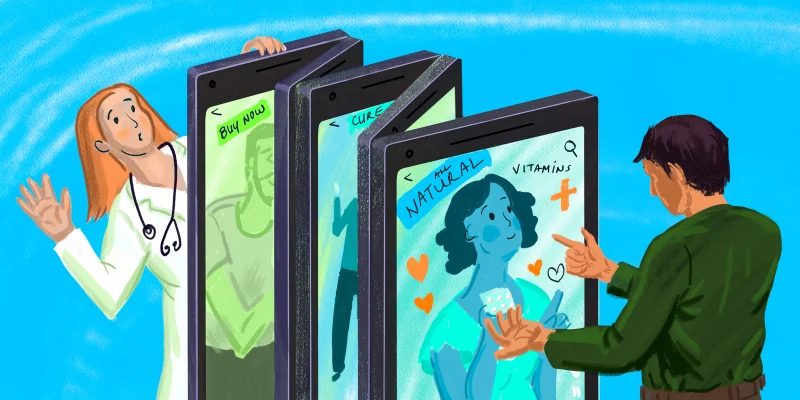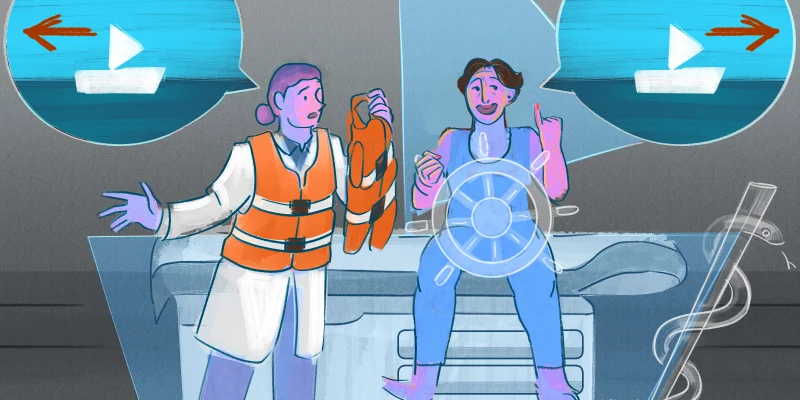When I first entered medical school, I thought my love life wasn’t going to change much. As a lifelong planner who prided myself on time management, I assumed being in school would at most put a slight wrinkle into my perfectly designed itineraries and game-plans for quality time with my S.O. I couldn’t have been more wrong.
As my time in medical school has progressed, my day-to-day has only gotten more hectic and demanding. Unlike many jobs in this era of remote work, the ‘job’ of a medical student takes place inside brick and steel, away from the home and from loved ones. Additionally, the schedule of a medical student is constantly in flux, with hours varying depending on the rotation or class.
These long and unpredictable days can cause conflict in romantic relationships. I’ve personally had plenty of draining shifts in the hospital, socially and physically, that have made it hard to be fully emotionally present for my S.O. when she is also going through difficult times. Additionally, the long hours spent at work, especially when changing from day to night shifts, can make it hard to plan scheduled dates or even times to talk. On a recent rotation with six-day workweeks and late sign-outs, for example, I found it extremely hard to have quality time with my S.O. We realized eventually that we had spoken for less than an hour total during the entire week.
Furthermore, unexpected cancellations due to delays at the hospital or just lack of social energy can all lead to pent-up frustration and decreased interest in one another. The relationship strain caused by the difficult life of a medical student, in other words, can often feel insurmountable.
And yet, there is hope: Amid all these stressors, I’ve found that it’s the people I care for as a medical student that help, rather than hinder me. My patients come from all walks of life and manner of perspectives, and thus can serve as unintentional sources of wisdom. Recently, I asked a 95-year-old former college professor about his secret to a happy relationship. He responded, “Say, ‘Yes, dear,’” with a straight face, before breaking out into laughter. “But in all honesty,” he added, “compromise. It’s a give and take.” I chuckled at his words, but they stuck with me.
Another time, I met a patient in the ED. He had had a stroke, and had been brought in by his wife the previous night. Remarkably, this patient already seemed much improved by the time I saw him, despite no interventions on our part — but it was his relationship with his wife that truly stood out to me.
When I first approached the couple, he was lying down on his hallway bed with her sitting right next to his head. As I walked over, I saw her whisper in his ear, and he pulled himself up to turn toward me. It wasn’t until we started the physical exam that I noticed something peculiar.
“Follow my finger with your eyes,” I instructed.
“I’m sorry, but I’m completely blind in both eyes,” he replied calmly.
“He really is,” she chimed in. “A battery accident almost 30 years ago caused it.”
The more we talked, the more I learned how their relationship had evolved over the 63 years they had been together. Quite literally, she learned to operate as his eyes, while he was still able to speak for himself when needed.
These two patient experiences — one short and sweet, the other more prolonged and profound — showed me how crucial compromise and sacrifice are to any relationship. Sometimes, the pressure of medical school can seem overwhelming, and can make us feel like romantic relationships are incompatible with our identities as med students. And yet, relationships are crucial to well-being, romantic or otherwise. They’re worth fighting for.
Though being in medical school doesn’t leave us with a lot of time to reflect on our love lives, we’re still unconsciously learning things every day that can be applied to our relationships. For instance, I’ve recently come to understand that like medicine, love and relationships are often out of our control. Attempting to manage the direction of a relationship by game-planning and strategizing can actually have a deleterious effect: After all, a relationship is an organic, growing thing, and its inherent nature is fundamentally incompatible with rigid structure.
As a result, I now value the romance of spontaneity and flexibility. Given the arbitrariness of my schedule, I know that some days I’ll have hours to spend with my partner, and others I’ll have minutes. But such give and take doesn’t have to spell disaster: As the older couple I met in the ED showed me, it’s the compromise, and the embracing of difficulty, that can foster greater intimacy and commitment.
To my fellow medical students, I offer the following advice: When you know you’ll have a busy month coming up, set expectations with your S.O. early. In my relationship, my partner and I went over what my hours would look like, what weekend days I’d have off, and where my mental and social batteries would be by the end of the workday. This intentionality helped us to feel more like co-conspirators.
In addition, I urge med students in my position to work with enabling constraints. Instead of planning weekly date nights downtown far from the hospital, for example, I recommend you get takeout and have quick dinners in the hospital cafeteria when you’re working late nights or weekend shifts.
Finally, if time is truly hard to come by, try the following ways to keep the romance alive: Checking in when you have the time, and asking specific questions (not “How’s your day?” but “What are your plans for the rest of the day?”) can elevate intimacy even when far apart. So too can sending your S.O. a quick good morning or good night text ahead of a long shift to let them know you’re thinking about them.
For many medical students who thrive off of being in control, this type of surrender to the moment is scary. But it’s also a necessary way of existing: Relationships can’t be game-planned to death anyway, as they are always a two-way street, one that incorporates feedback and can change accordingly. And yes, it’s definitely good to plan ahead, set expectations, and be as open and responsive a communicator as you can be. But in the long run, love doesn’t like to be boxed in. It doesn’t always work as just another puzzle piece for your life.
Ultimately, relationships will always be hard. There will never be a perfect time for them. However, as medical students, you’re in a unique position to be more intentional about what you want out of your romantic life. For me personally, navigating a relationship as a medical student has been a net positive, as it’s helped me to be more realistic about expectations and more resilient in the face of short-term challenges. It’s also brought my partner and I closer together: As we discuss what we need to keep the romance strong, I’ve learned more about what her love languages are and how to best be there for her. These conversations about relationship management have enabled me to be more creative and adaptive — skills that I’m sure I’ll rely on as I embark on this career in medicine.
How do you balance love and medicine? Share your strategies in the comments!
David Xiang is a third-year medical student at Harvard Medical School, aspiring to be a physician-writer. He enjoys writing poetry and fiction, playing ukulele, and playing basketball with classmates. He also makes comedy skits on TikTok @confused.med.student. David is a 2022–2023 Doximity Op-Med Fellow.
Image by Oleg Lyfar / Getty Images







